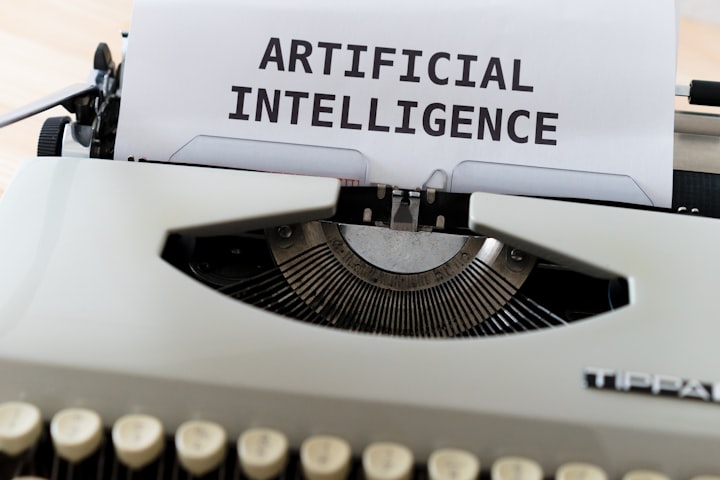A.I. The world rapidly growing field
A.I. Might be the next most powerful thing in 2023
Artificial Intelligence (AI) is a rapidly growing field that has the potential to revolutionize our lives in countless ways. At its simplest, AI refers to the development of computer systems that can perform tasks that would normally require human intelligence, such as understanding natural language, recognizing objects, and making decisions.
One of the key benefits of AI is that it can automate many tasks that are repetitive or dangerous for humans, freeing up time and resources for more important work. For example, AI can be used in manufacturing to inspect products for defects, or in healthcare to help diagnose diseases.
Another important application of AI is in the field of big data. With the amount of information generated every day increasing at an exponential rate, it has become impossible for humans to process and make sense of all this data on their own. AI algorithms can help analyze vast amounts of information, identify patterns and correlations, and make predictions about future trends.
One of the most exciting applications of AI is in the field of robotics. Robots equipped with AI can perform tasks that are too dangerous or difficult for humans, such as exploring other planets or working in hazardous environments. Additionally, AI-powered robots can be used to automate many tasks in fields such as manufacturing, agriculture, and healthcare.
Another important aspect of AI is its ability to learn from data. Through a process called machine learning, AI algorithms can be trained to recognize patterns and make decisions based on data. This means that as more data is collected, AI systems can continue to improve and become even more accurate and effective.
Despite the many benefits of AI, there are also some concerns about its potential impact on society. One of the biggest concerns is the potential loss of jobs, as many tasks that are currently performed by humans may become automated. Additionally, there are fears that AI could be used to develop autonomous weapons, or to invade privacy through the collection and analysis of personal data.
To address these concerns, it is important that AI be developed and used in a responsible and ethical manner. This means considering the potential consequences of AI technology and taking steps to minimize the risks. For example, this could involve developing AI systems that are transparent and explainable, so that people understand how decisions are being made.
It's important to note that the development of AI is not just limited to technology companies and research institutions. Governments and organizations across various industries are also investing in AI research and development. For example, healthcare organizations are using AI to develop personalized treatment plans for patients, financial institutions are using AI to detect fraud and minimize risk, and retail companies are using AI to improve the customer experience and increase sales.
As AI continues to advance, it is likely to play an even larger role in our lives in the future. Some experts predict that AI will eventually surpass human intelligence, leading to a future in which machines are able to think, reason, and make decisions like humans. This is known as artificial general intelligence (AGI), and it is the ultimate goal of AI research.
While the development of AGI is still many years away, there are already many examples of AI systems that are able to perform complex tasks that were once thought to be exclusively human. For example, AI systems can now write news articles, create art, and even play games like chess and Go at a superhuman level.
One of the biggest challenges facing AI research is the development of human-like intelligence. Currently, AI systems are designed to perform specific tasks, but they do not have the ability to understand the context or meaning behind those tasks. To develop AGI, researchers must find a way to enable AI systems to understand the world in the same way that humans do.
Despite the challenges, the future of AI is bright, and the potential benefits are enormous. Whether it is improving efficiency, increasing safety, or transforming the way we live and work, AI has the potential to change the world in countless ways. As AI continues to advance, it is important that we consider both the potential benefits and the potential risks, and work together to ensure that AI is developed and used in a responsible and ethical manner.
In conclusion, AI is a rapidly growing field with the potential to revolutionize our lives in countless ways. Whether it is automating tasks, analyzing big data, or developing robots, AI has the potential to improve efficiency and make our lives easier. However, it is important to be mindful of the potential risks and to develop AI in a responsible and ethical manner.
About the Creator
John Smith
I'd appreciate it if you'd tip me:
http://www.paypal.me/aro292






Comments
There are no comments for this story
Be the first to respond and start the conversation.